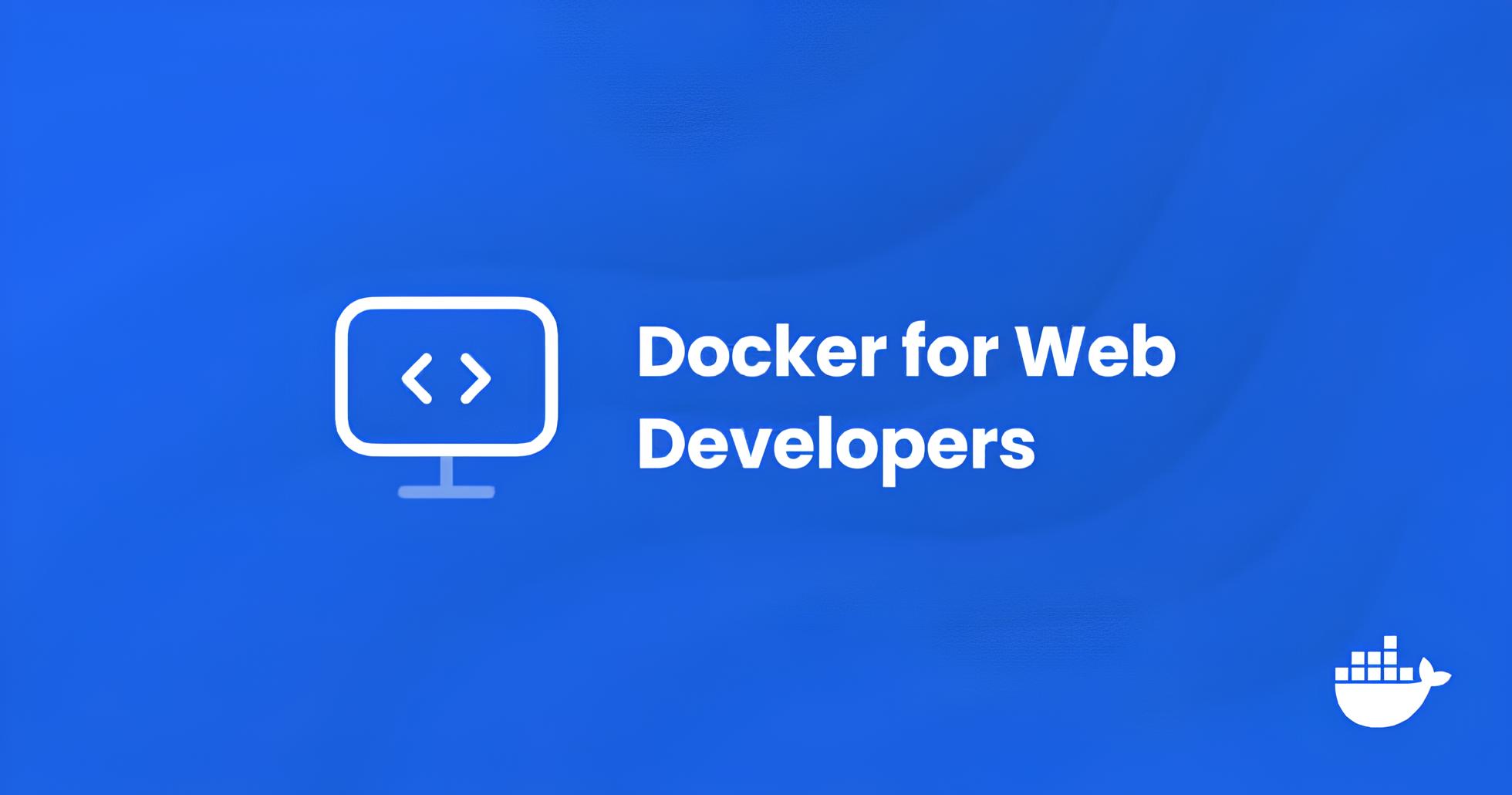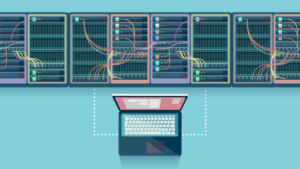Web development today is more complex than ever. The need to manage multiple programming languages, frameworks, and services like databases, caches, and APIs has made setting up a consistent development environment a challenge. Docker, a platform for developing, shipping, and running applications inside containers, has revolutionized this aspect of web development. In this blog, we’ll explore how Docker simplifies web development, reduces common problems, and enhances the overall development experience.
What is Docker?
Docker is an open-source platform designed to automate the deployment of applications inside lightweight, portable containers. These containers encapsulate everything an application needs to run—such as code, libraries, environment variables, and system dependencies—making it easier to move applications across environments (from development to testing to production) without compatibility issues.
Docker eliminates the traditional problems developers face when setting up development environments on different machines. Whether you’re working locally, in the cloud, or with a distributed team, Docker ensures that everyone has the same environment, avoiding the dreaded “it works on my machine” problem.
Why Use Docker for Web Development?
Here are a few reasons why Docker is so beneficial for web developers:
1. Consistent Development Environments
One of the biggest challenges developers face is maintaining consistent environments across different systems. Different machines can have different versions of software, dependencies, or operating systems, leading to unexpected issues. Docker solves this by providing a consistent environment that runs on any system with Docker installed.
When you create a Docker container for a project, it includes all the necessary dependencies, libraries, and configurations needed for the app to run. This makes sure that what works on your local machine will work the same on your teammates’ machines or production servers.
2. Easy Dependency Management
Web development often involves managing multiple dependencies—different versions of databases, backend services, or libraries. Traditionally, developers may have to install, configure, and troubleshoot these dependencies manually, which can lead to version conflicts or configuration errors.
Docker simplifies this process by isolating each dependency in a container. Each container can run its own version of a service, such as a database or caching server, without affecting other containers or the host machine. This way, developers can easily control which versions of a service or library they need for each project.
3. Isolation of Services
Modern web applications often rely on a variety of services, including databases, message queues, caching systems, and more. Managing all these services on a single machine can quickly become complex. Docker allows developers to isolate these services in their own containers, preventing conflicts and ensuring that each service only interacts with the components it needs.
For example, if your web application relies on a specific version of a database, you can run that database in a container without worrying about conflicts with other applications that may require a different version. This isolation also ensures that your application runs the same way in both local and production environments.
4. Simplified Onboarding for New Developers
When new developers join a project, they often spend significant time setting up their development environments, ensuring that they have the correct versions of dependencies, libraries, and tools. This can lead to wasted time and frustration if issues arise.
Docker eliminates this problem by allowing you to define your development environment in a Dockerfile and a docker-compose.yml file. New developers can simply run Docker commands to spin up the exact same environment that the rest of the team is using, making onboarding quick and painless.
5. Reproducible Environments
In web development, it’s common for environments to vary between development, staging, and production. This can lead to the frustrating situation where an app works perfectly in development but fails in production due to slight differences in configuration.
Docker ensures that every environment—whether it’s your local machine, a staging server, or production—is exactly the same. By using Docker containers, you can be confident that your app will behave the same way across different stages of development, leading to fewer bugs and deployment issues.
Docker in the Web Development Workflow
Docker fits naturally into the web development workflow. Here’s how you might typically use it in your projects:
1. Setting Up Your Web Application
With Docker, you can define your entire web development environment (including databases, caching servers, and backend services) in a simple file called a Dockerfile. This file contains instructions for building a Docker image that includes everything your application needs to run.
You can also use Docker Compose, a tool that allows you to define multi-container applications. With Docker Compose, you can specify your web application, database, and any other services you need in a single YAML file, making it easy to spin up all the services with a single command.
2. Running and Testing Your Application
Once you’ve set up your Docker containers, you can start running them. Docker ensures that your application and all of its services are isolated and run consistently, even if you’re working on different machines.
For example, if you’re developing a Node.js application that requires a MongoDB database, you can run both the app and the database in separate containers. Docker will handle the networking and communication between them, making it easy to test the integration between your web app and database.
3. Collaborating with Your Team
Docker makes it easy for teams to collaborate on the same project without worrying about discrepancies in local environments. Developers can share Dockerfiles and Docker Compose files to ensure that everyone on the team is working with the same setup. As long as your team members have Docker installed, they can easily spin up the same environment with minimal setup.
Moreover, Docker’s ability to version control dependencies and services means that when a developer makes changes to the Docker setup (e.g., upgrading to a newer version of Node.js), everyone else can seamlessly incorporate those changes without dealing with the usual setup headaches.
4. Simplifying Production Deployments
Docker is not just useful for local development. It also plays a crucial role in production environments. When you’re ready to deploy your app, Docker allows you to easily package your application and its dependencies into a container and deploy it to any cloud provider or server that supports Docker.
By using Docker in production, you can ensure that the same containerized environment that worked in development will work in production, making the deployment process much smoother. This reduces deployment errors, accelerates CI/CD pipelines, and makes scaling applications easier.
Best Practices for Using Docker in Web Development
While Docker provides immense benefits, there are best practices to follow to ensure a smooth experience:
- Minimize image size: Smaller Docker images are faster to download and deploy. Use lightweight base images (like node:alpine for Node.js apps) and avoid including unnecessary files in the container.
- Use multi-stage builds: For larger applications, multi-stage builds allow you to separate the build environment from the runtime environment, keeping the final image lean.
- Avoid hardcoding secrets: Never store sensitive data (like API keys or database passwords) directly in Dockerfiles. Instead, use environment variables or Docker secrets for secure management of credentials.
- Use Docker Compose for multi-container applications: When your application relies on multiple services (e.g., web servers, databases, caching), use Docker Compose to manage them together. This makes it easier to configure and orchestrate complex setups.
Conclusion
Docker is an essential tool for web development, simplifying the process of managing environments, dependencies, and services. By containerizing your development setup, Docker ensures consistency across local and production environments, improves team collaboration, and reduces the friction of managing complex web application stacks.
Whether you’re working on a simple project or a complex multi-service application, Docker streamlines the development process, allowing you to focus on writing code instead of troubleshooting environment-related issues. By adopting Docker for web development, you’ll be able to create scalable, reproducible, and efficient environments that enhance both development and deployment workflows.
As web development continues to evolve, Docker is becoming more indispensable, and learning how to use it will pay off for developers at any stage of their career.




